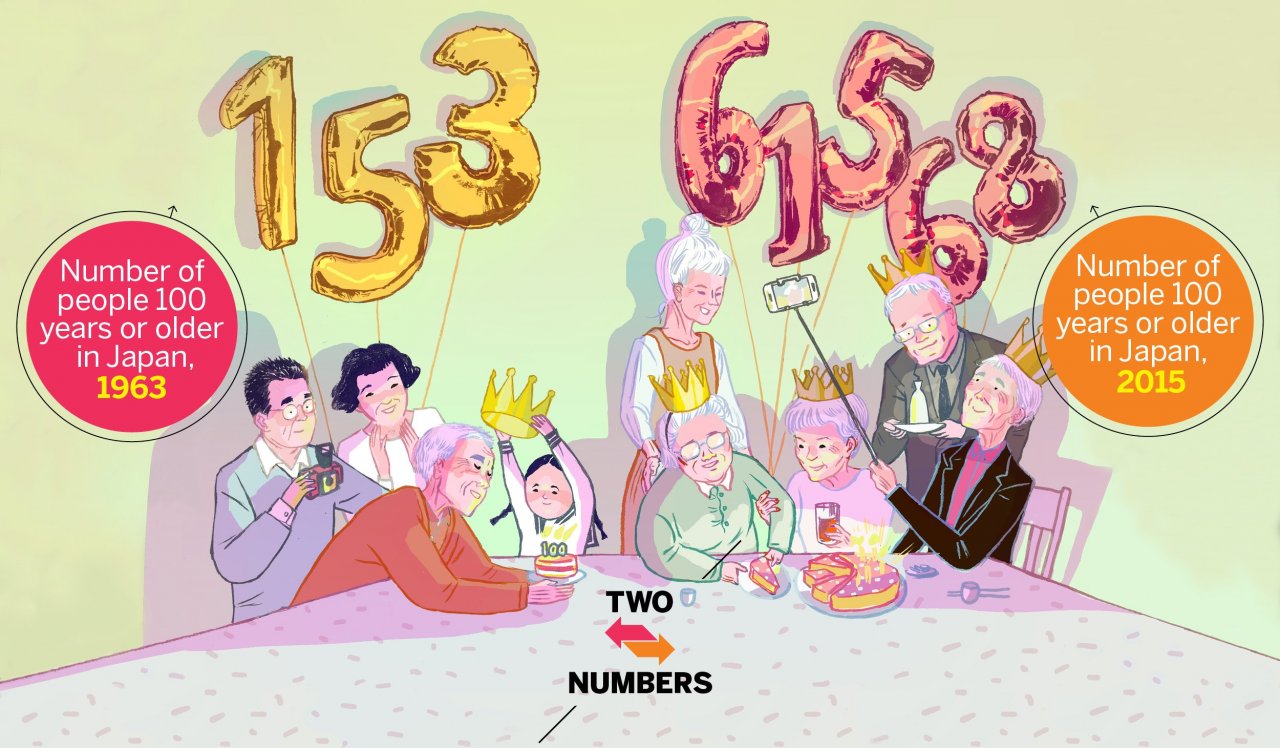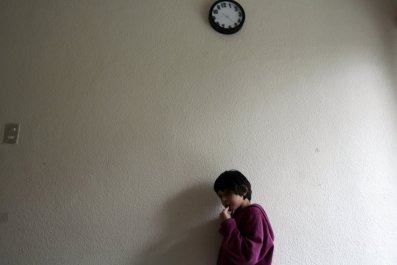Getting old is getting old in Japan. The government has a tradition of presenting Japanese centenarians with the gift of a sakazuki, a silver sake cup, in the year they turn 100, but there are so many people hitting the milestone these days that the state is looking for a cheaper alternative.
In 1963, when Japan first recorded the country's centenarian population, there were just 153 people 100 and over in the country. Five decades later, in 2015, there are 61,568 people that old, according to the Japanese Ministry of Labor, Health and Welfare.
That is 0.048 percent of the population, according to the U.N.'s Revision of World Population Prospects 2015 estimates, making Japan the country with the most centenarians per capita in the world. The United States has more centenarians, 71,972, but that represents only 0.022 percent of the population. Puerto Rico, Guadeloupe, Italy and Martinique have the next highest concentrations.
As of 2013, Japan had the highest average life expectancy in the world, with women living to an average of 86.3 years. Just over a quarter of Japan's population is aged 65 and over, according to the World Bank, and the ministry has warned that an extra one million care workers must be found to cope with the aging population by 2025, when the share of people aged 65 and over is forecast to be 40 percent.
Ryuichi Kaneko, deputy director of Japan's National Institute of Population and Social Security Research, says that while there is no single decisive factor to explain the longevity of Japan's population, it can be attributed to dietary patterns, the country's universal health care system, an egalitarian society and a raison d'être among the elderly population, with many continuing to work after their official retirement.
The commemorative cups presented to Japan's centenarians are valued at approximately $66. On September 15, Japan's Seniors' Day, the government sent the gift, as well as a signed letter from Prime Minister Shinzo Abe, to the 30,379 people turning 100 this year at a cost of around $2 million.
Concerned about that rising cost, the health ministry already reduced the size of the cup in 2009 from 4 inches in diameter to 3.5 inches. The government is now considering making the cup out of a less expensive metal, although a tin cup seems too cruel a choice.
Kaneko says the country's aging population is putting a record strain on Tokyo's health and social welfare bill. "Japan's 'population onus' is rapidly expanding," he says, explaining that demand for social security is expanding because of the increase of the elderly while the supply of funds to pay for social security is shrinking because of the decrease of young, working people. "Social security costs are hitting a record high every year."
The government predicts even more people, 39,000 in total, will turn 100 in 2018.
















